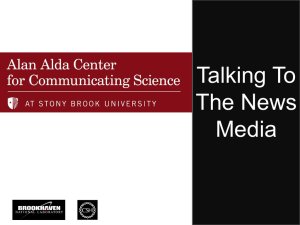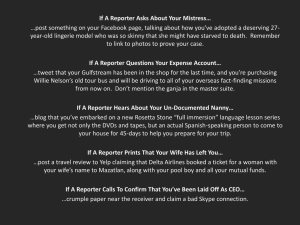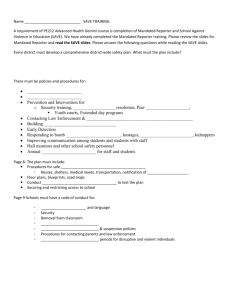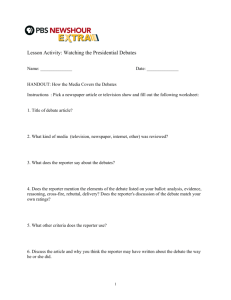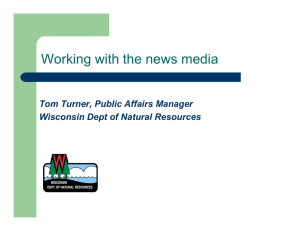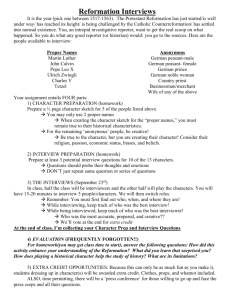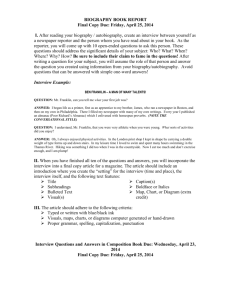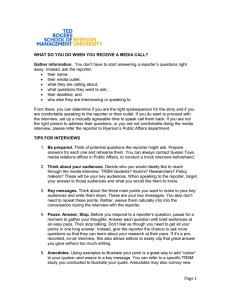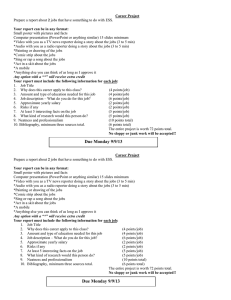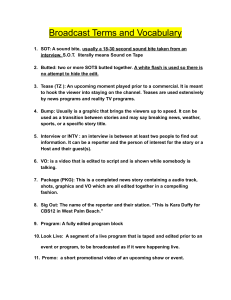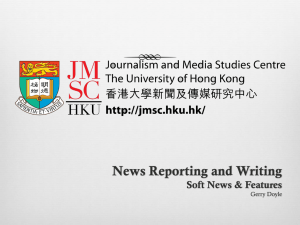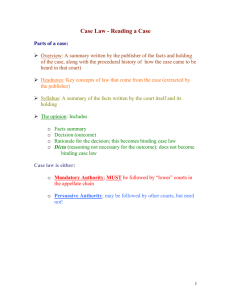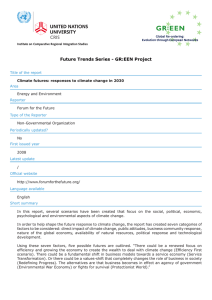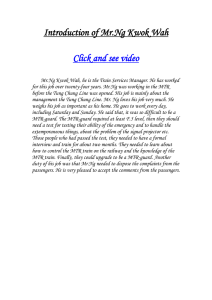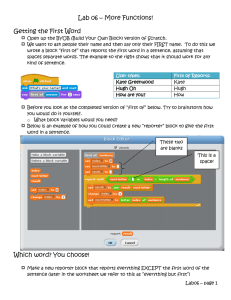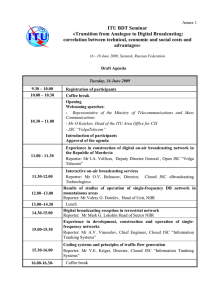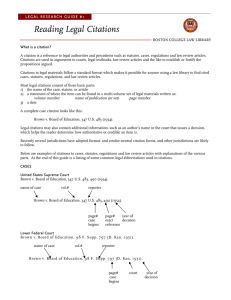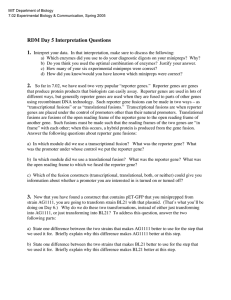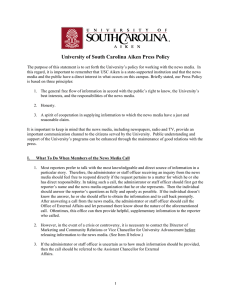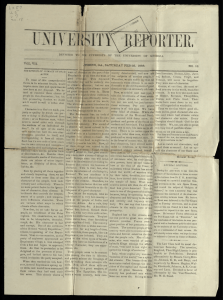Media Interview Tips University Relations
advertisement
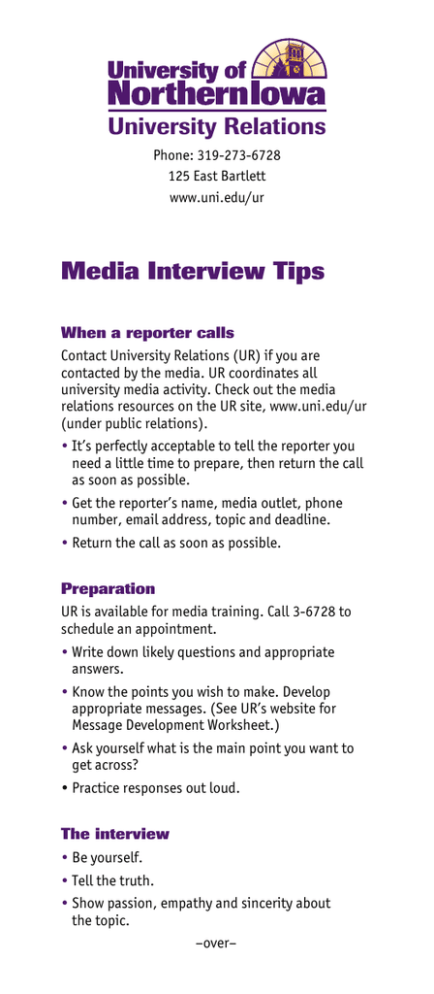
University Relations Phone: 319-273-6728 125 East Bartlett www.uni.edu/ur Media Interview Tips When a reporter calls Contact University Relations (UR) if you are contacted by the media. UR coordinates all university media activity. Check out the media relations resources on the UR site, www.uni.edu/ur (under public relations). • It’s perfectly acceptable to tell the reporter you need a little time to prepare, then return the call as soon as possible. • Get the reporter’s name, media outlet, phone number, email address, topic and deadline. • Return the call as soon as possible. Preparation UR is available for media training. Call 3-6728 to schedule an appointment. • Write down likely questions and appropriate answers. • Know the points you wish to make. Develop appropriate messages. (See UR’s website for Message Development Worksheet.) • Ask yourself what is the main point you want to get across? • Practice responses out loud. The interview • Be yourself. • Tell the truth. • Show passion, empathy and sincerity about the topic. –over– • Answer the question, move on to important points you want to make and offer a supporting point to strengthen your message. • Remember, you become the message. • “No comment” is never an appropriate response. If you can’t comment, explain why (litigation, confidential, etc.) • There is no such thing as “off the record.” • Make your points at the beginning. Repeat them at the end. • Less is more. • Use quotable quotes - be illustrative and pithy. • Use flagging statements - “the point I’d like to make…” • Be a storyteller. • Avoid jargon. Speak so the lay person can understand. • Always support your point with facts, statistics or personal experience. • Don’t repeat negative language or inaccurate information. • Don’t answer hypothetical questions. • If you don’t know the answer, say so and find someone who does. • Interviews are short. You only get a few minutes to share your expertise. • Don’t ask to approve the story before it’s published or broadcast. • If a reporter ambushes you with a hostile interview or unexpected line of questioning, refer back to the original topic. “I’m prepared for topic A, not topic B at this time.” • Consider the two questions you don’t want to be asked then think about how you will answer them. The television interview • Darker clothes look best. • When interviewing outdoors, don’t wear sunglasses. • Look directly at the reporter, not at the camera. • Mind your facial expressions; smile and nod at only the appropriate moments. • Be natural. Don’t fidget or swivel in your chair. • Don’t use hand gestures. • Don’t chew gum. • Silence is better than “ummm.” 8/12
